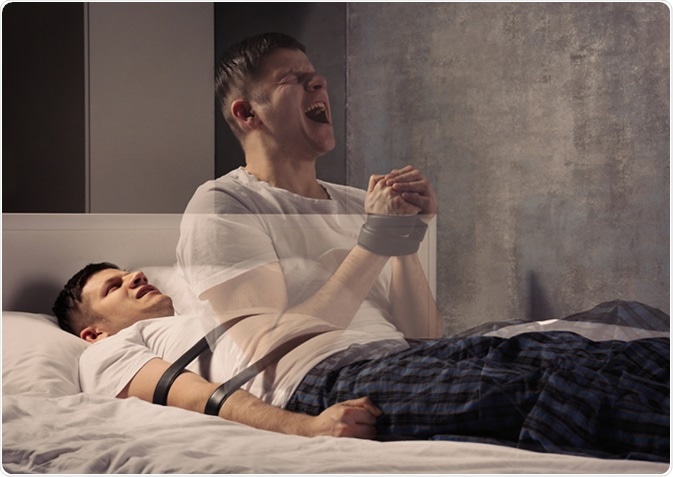For The Latest Medical News, Health News, Research News, COVID-19 News, Pharma News, Glaucoma News, Diabetes News, Herb News, Phytochemical News, Thailand Cannabis News, Cancer News, Doctor News, Thailand Hospital News, Oral Cancer News, Thailand Doctors
Sleep paralysis is a parasomnia or disorder related to sleep. In an episode of sleep paralysis, the person may experience temporary paralysis of the muscles which does not allow movement.
The person may not be able to speak either. Those who are unable to open their eyes may hallucinate about a supernatural presence is in the room that seeks to do them harm.

The person experiencing sleep paralysis may find it hard to breathe because of a feeling of weight on the chest. The sense of the chest being crushed with great pressure is a commonly reported phenomenon. Some may also have mild hallucinations about being strangled or sexually assaulted. Others may feel that they are falling, floating or spinning out of control even when they are firmly on the bed.
To some it may feel like an out-of-body experience. They may imagine that they are hovering over the bed. Most experience a shortness of breath due to the fear they are feeling. The muscles usually begin to respond after about two minutes. It may be longer for some people or may simply seem to be longer because of their fear.
There is no cure for sleep paralysis. The treatment consists of managing the risk factors that trigger the condition. In many cases sleep paralysis is a one-off occurrence and the person does not have a recurrence. Most of us may expect to experience sleep paralysis at least once in our lives. However, for people who experience the condition frequently, it would make sense to see a doctor to get a formal diagnosis.
The first step in treating the condition is to identify any underlying cause that may be triggering the sleep paralysis. There could be a number of reasons for such an entity. Common reasons include insomnia or lack of sleep at night, narcolepsy or daytime sleepiness and loss of muscle control, family history of sleep paralysis in other relatives, sleeping on the back, disrupted sleep patterns due to work shifts or jet lag, sleep apnea, and other psychiatric mental disorders.
Once the primary issue and underlying cause has been identified, the doctor will suggest ways and means of eliminating these triggers. He may eliminate some of the medications being currently used. He may suggest counselling if the person is undergoing post-traumatic stress disorder. Physical exercise is also a good means of ensuring that the body is tired enough to sleep through the entire REM cycle without disruption.
The doctor will construct a complete medical history of the condition by asking questions about specific episodes. A polysomnogram which charts the brain waves, heartbeat, and breath while a person sleeps overnight, may also be performed. An electromyogram or EMG may be done to record levels of electrical activity in the muscles. A Multiple Sleep Latency Test or MSLT may be done to assess daytime sleepiness.
Once all the data from the different tests has been collected, the doctor will give the formal diagnosis of sleep paralysis. Following this measures to prevent the triggers of sleep paralysis may be recommended to allow the person to sleep peacefully and restfully. This should prevent episodes of sleep paralysis from occurring. These measures would include: